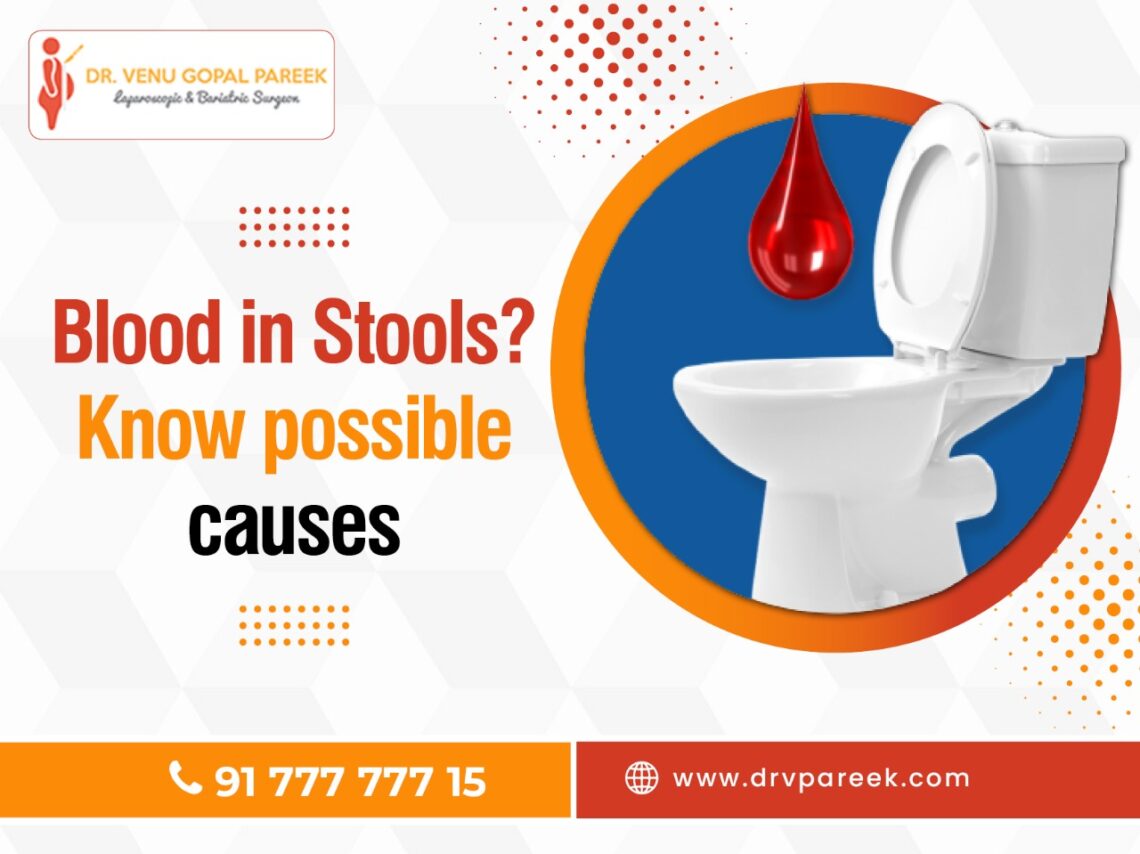
When you notice blood in your stools, it can cause a lot of stress. There might be many questions encircling your mind as if something is wrong. Well, it’s true; blood in stools is a symptom of many different medical conditions, which is often called rectal bleeding.
In most cases, blood in the stool occurs as a result of bleeding anywhere in the GI tract (gastrointestinal tract). It is the system of organs responsible for passing food, digesting it, and excreting waste. The GI tract extends from mouth to anus, and bleeding can occur anywhere in the tract. There are a number of reasons for bloody stool.
When blood is found in the stool, it usually appears red or maroon in color (hematochezia). Blood from the upper GI tract that has been digested may have a different appearance as it passes through the gut. The blood is known as malena, and it resembles black or tar-like. The color of the bloody stool varies based on the underlying cause.
Is rectal bleeding serious?
Rectal bleeding may occasionally be a mild sign of a problem that is easily manageable. For instance, rectal bleeding can result from haemorrhoids. Hemorrhoids are typically simple to treat, and they hardly stay for very long.
Rectal bleeding, however, may sometimes indicate a severe illness like colon cancer. It’s essential to monitor if you observe any blood in stools. If you experience it heavily and frequently or if it is bothering you too much, consult an expert doctor as soon as possible.
In this article, we have provided some potential causes for blood in the stool.
Upper GI tract bleeding
The upper GI tract bleeding may be the source of blood in your stool and is commonly caused due to peptic ulcer disease. Ulcers are the sores that develop in your stomach’s lining. Blood that comes from a peptic ulcer formed on blood vessels will look red or black and tarry. To stop the bleeding in your upper GI system might require surgery if it is serious.
Gastroenteritis
Gastroenteritis is a disease that causes stomach upset. The majority of the time, these are caused by bacterial or viral infections or parasites. Gastroenteritis often results in bloody diarrhea. Food poisoning and stomach flu are common types of gastroenteritis.
Anal fissures
A small, thin tear that happens in your anus lining is called an anal fissure. A bowel movement may cause bleeding and pain. Fissures in the anal cavity may develop as a result of constipation or passing hard, large stools. This can result in a tear in the skin, and stretching the anus skin makes the fissures more evident.
Inflammatory Bowel Disease (IBD)
Bowel diseases such as IBD are autoimmune disorders. Your immune system attacks your own body parts if you suffer an autoimmune disease. IBD causes inflammation and damages the parts of your intestine. The two most common IBDs are Crohn’s disease and ulcerative colitis.
Anal fistula
The small holes that form between the anus and the end of the bowel are called anal fistulas. Typically, it appears when tissues nearby the anus become infected and allow pus to accumulate. Often, pus or blood continues to ooze from the fistula even after the pus drains.
Haemorrhoids
Hemorrhoids are swollen blood vessels that bulge out from the lower rectum. It is possible to rupture these veins if you strain or pass hard stool, which results in bloody bowel movements.
Diverticular Disease
Diverticula are abnormal tiny pouches that develop within your digestive tract. Occasionally, they can rupture and bleed due to infection and inflammation, which is called diverticulitis.
Ischemic Colitis
The large intestine suffers from ischemia colitis when its blood-supplying veins become narrowed or blocked. Older people are most likely to suffer from ischemic colitis. This can be a short-term or chronic condition.
Cancer
Blood in the stool is a sign of bowel cancer, often called colorectal cancer. Cancer is an abnormal growth of cells anywhere along the GI tract, which includes the large intestine, rectum, and anal canal.
Polyps
Polyps are small benign growths that occur within the lining of the intestinal tract. Polyps are of different types, and adenomatous polyps are the most common. These are also called colon polyps, as they grow on the lining of your colon or large intestine. Colon polyps are one of the causes of blood in stools.
Bloody stool might also be caused due to trauma or as a result of medication side effects and radiation therapy.
A number of factors can contribute to blood in the stool. Anal fissures and hemorrhoids are painful and annoying, but they are not harmful. Some conditions like upper GI bleeds, polyps, IBD, diverticular disease, and ischemic colitis might require surgery.
Sometimes, blood in the stool may also be a false alarm which means the stool may be the red color of something you have eaten.
Although blood in the stool can just be unpleasant, it may not be a reason to be worried. In some cases, they are harmless and will resolve on their own. However, if you experience persistent bleeding, consult an expert immediately, especially if there is pain along with bleeding. A lot of blood during the bowel movement, especially associated with dizziness, fatigue, fast heartbeat, or breathlessness, should receive emergency care.
To know more about treatment options, contact Dr. V Pareek, one of the finest laparoscopic and bariatric surgeons in Hyderabad. For an appointment, call +91 91-777-77715 and book your slot.







